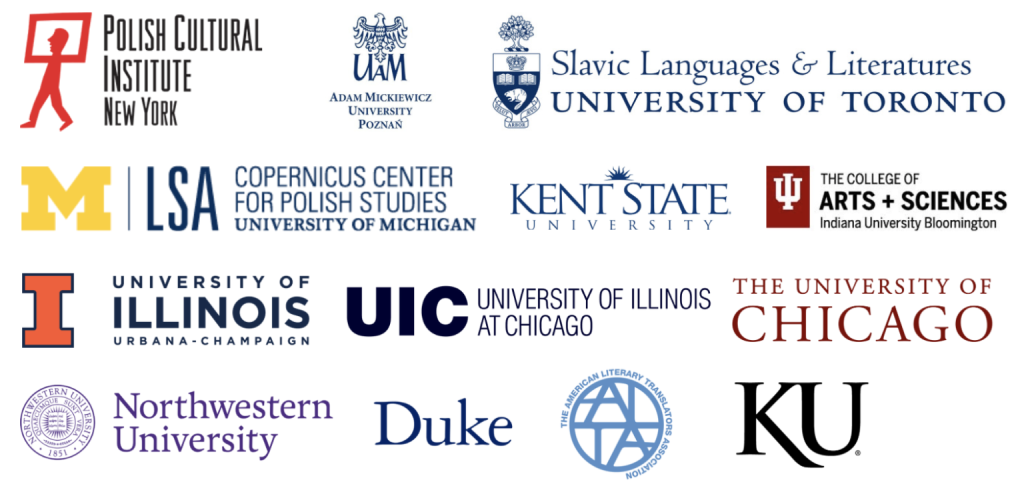S3E1 and all video recordings are available at:
Polish Cultural Institute New York YouTube
Encounters with Polish Literature is a video series for anyone interested in literature and the culture of books and reading. Each month, host David A. Goldfarb will present a new topic in conversation with an expert on that author or book or movement in Polish literature. More about the Encounters with Polish Literature series and the timeline.
Tadeusz Dołęga-Mostowicz (1898-1939), born near Vitebsk in modern-day Belarus, came from a wealthy Polish family and had a short but very successful career as a journalist for the daily paper, Rzeczpospolita (The Republic), and as a novelist and screen writer in the 1920s and 30s. Most of his novels were made into films in the author’s own day. His most famous novel, The Career of Nicodemus Dyzma (1932), spawned two films, a television miniseries, and various stage versions, but has until recently been known in the English speaking world to a few cognoscenti as the novel that inspired Jerzy Kosiński’s Being There (1970). We think the recent translation of Mostowicz’s novel makes the case that it is worth reading for its own sake as a political satire that somehow seems to apply to every era.
Dyzma is a country bumpkin who moves to Warsaw in search of opportunity. He has no particular talent suited to city life or work in the capital, and yet he succeeds at every turn. He picks up an invitation to an elegant party that a courier accidentally drops in the road, attempts to return it, and is presumed to be a party guest. He insults another guest and is commended for his bold initiative by a rival of the victim of the insult. He says something vulgar and is praised for his forthright masculinity. With each faux pas he falls into the good graces of someone in power, and rises through the ranks of business and politics in spite of his worst efforts.
In this episode we focus on The Career of Nicodemus Dyzma as a political satire that seems as relevant today as it was in 1932 and as it was for Kosiński in the 1960s and 70s. We consider whether the charge that Kosiński plagiarized from Mostowicz is fair by looking at a few possible examples of plagiarism, but we leave it to our viewers to make their own judgment on that question. We also ask our guests, Mostowicz’s translators, about the special challenges of translating humor, satire from a different era, intentional malapropisms, and Mostowicz’s complex wordplay.
Works discussed in this episode:
Dołęga-Mostowicz, Tadeusz. The Career of Nicodemus Dzyma. Tr. Ewa Małachowska-Pasek and Megan Thomas. Intro. by Benjamin Paloff. Evanston, Ill.:Northwestern U. Pr., 2020.
Gombrowicz, Witold. A Kind of Testament. Ed. Dominique deRoux. Tr. Alastair Hamilton. Intro. by Maurice Nadeau. Urbana, Il.: Dalkey Archive Pr., 2007.
Kosiński, Jerzy. Being There. New York: Grove/Atlantic, 1999.


Ewa Małachowska-Pasek is Ladislav Matějka Collegiate Lecturer in Polish and Czech Studies at the University of Michigan, Ann Arbor. Her research interests include applied linguistics, second language acquisition, and critical Romani studies
Megan Thomas lives in Ann Arbor and is, with Ewa Malachowska-Pasek, the translator of Zofia Nałkowska’s The Romance of Teresa Hennert and Tadeusz Dołęga-Mostowicz’s The Career of Nicodemus Dyzma. She is a specialist in public elementary education in high-poverty communities.
Bartek Remisko, Executive Producer
David A. Goldfarb, Host & Producer
Natalia Iyudin, Producer




